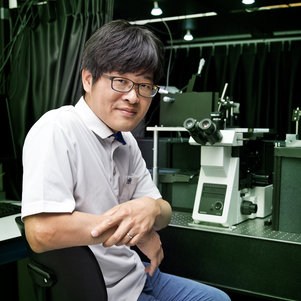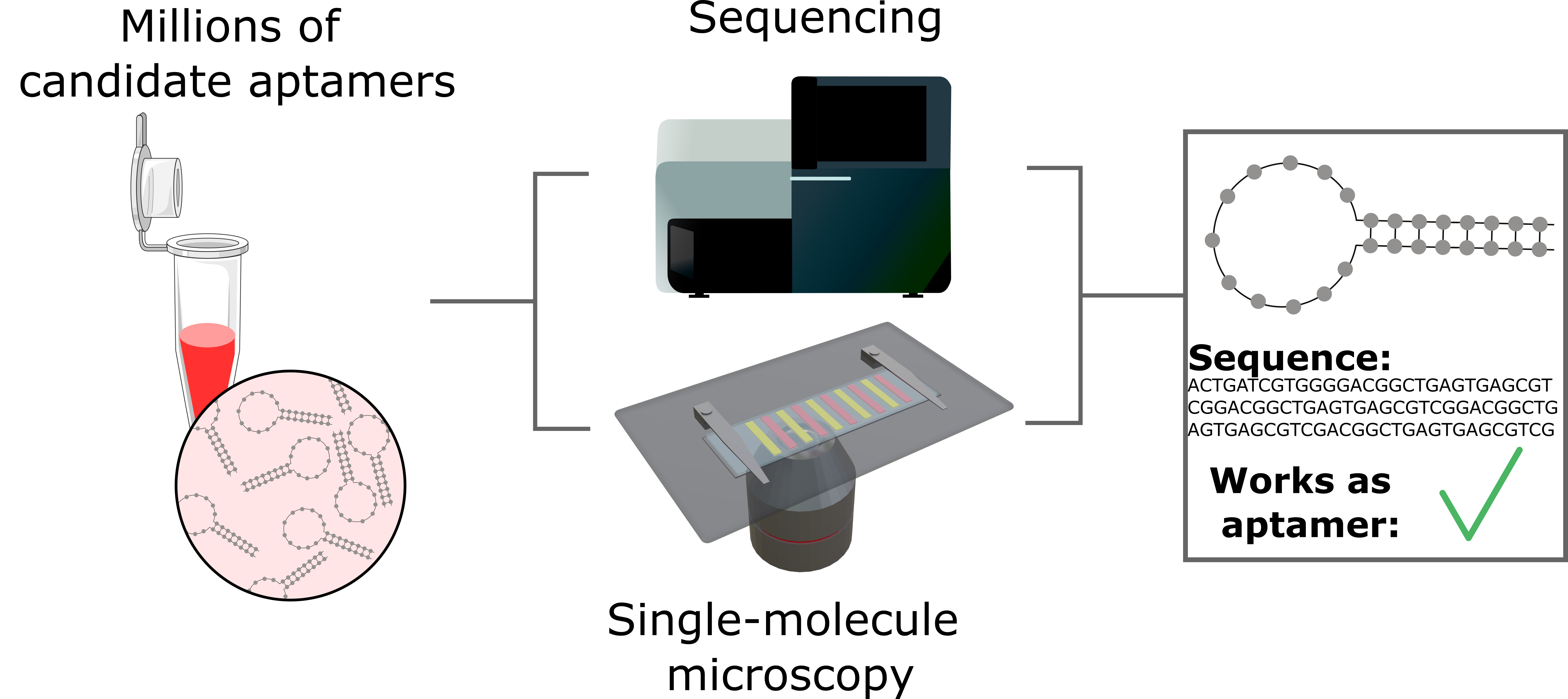Research and drug development platform supported by ERC grant
Apart from storing heritable information, DNA can fold into a key that unlocks functions in specific proteins. Such DNA keys, called ‘aptamers’, are highly sought-after as new drugs and tools in biological research. Delft researchers developed a technique to find the right DNA key between the countless different aptamers that exist. The European Research Council has now awarded their idea with a Proof-of-Concept grant.
“We best know DNA as the long, chain-like molecules that faithfully store your heritable information as a four letter code - A's, C's, T's and G's. Less well known is its side job as a message carrier”, says co-applicant Carlos de Lannoy. “Indeed, some DNA molecules can contribute to the bustling communication happening in living cells, by folding into key-like shapes that fit specific locks on proteins. Such DNA keys – known as 'aptamers' – are highly sought-after as new drugs and tools in biological research. However, looking for the right aptamer among countless possible candidates can be as daunting as searching for a needle in a haystack.”
Researchers from the Joo Lab at Delft University of Technology may have devised a way to find such DNA keys. Using a special technique that combines single-molecule microscopy and DNA sequencing, they propose to scan millions of candidate aptamers on their lock-fitting ability simultaneously. The European Research Council (ERC) has now awarded their idea with a Proof-of-Concept grant, allowing them to test this concept and its application in a commercial setting. If successful, their technology will pave the way to new life-saving treatments and exciting research opportunities.
Credits header image: Dimitri Otis/Photodisc/Getty Images



